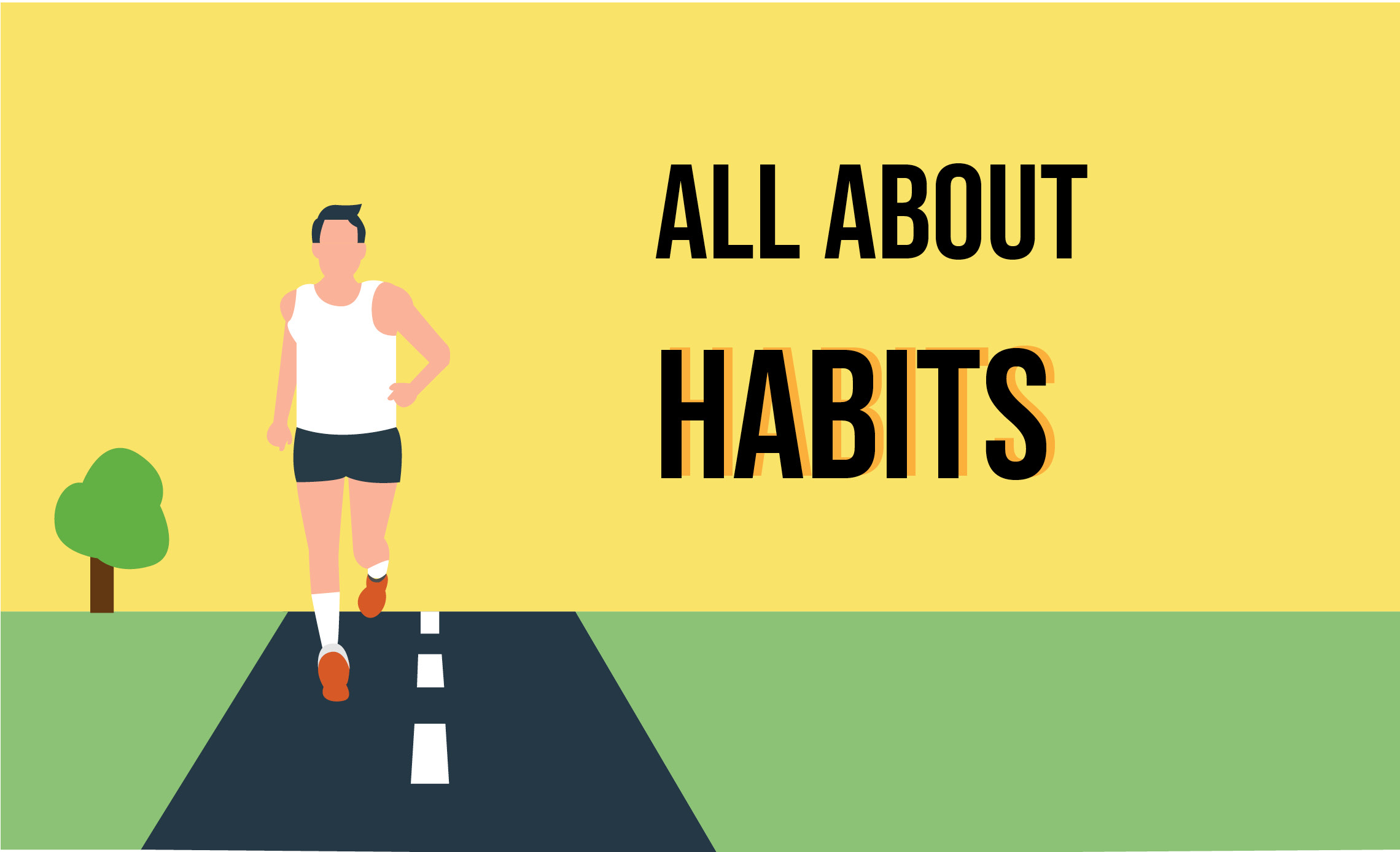by Staff Writers Nishi Bhagat, Alisha Chhangani & Brooke Zheng
From waking up earlier to working out more, there are so many habits that we wish could develop. According to the Business Insider, habits make up roughly 40% of the day, and because we are all stuck at home, now is an especially good time to change some of those habits. The Smoke Signal has compiled a list of tips and tricks to help you build or change habits.
Psychology of Habits
A habit is an acquired behavior pattern regularly followed until it has become almost involuntary. Every habit starts with a psychological pattern called a “habit loop,” a three-part process. First, there’s a cue, or trigger, that tells your brain to let a behavior unfold. Then a routine develops which is the behavior itself. The last step is the reward: something that your brain enjoys that helps it remember the “habit loop” in the future.
Types of Habits
Different types of habits can include motor habits, intellectual habits, habits of character, and keystone habits.
Motor habits are related to the physical activity an individual does.. Examples of motor habits include walking, standing, running, etc. This type of habit must be practiced with care: there is danger that practicing movements incorrectly could be picked up by the cerebellum and create a bad habit, for example bad posture. They are formed through practice, and once the habit is formed, it happens automatically.
Intellectual habits are habits related to psychological processes requiring intellectual abilities. Examples of intellectual habits include good observation and logical thinking. These types of habits are formed by constantly practicing good thinking skills until it becomes an instinct.
Habits of character, or emotional habits, express our character in the form of habits. Examples of habits of character include helping others in need, time management, and trusting people. These habits help us develop our personalities as we grow older.
Finally, keystone habits are small modifications in our daily routines that influence the formation of other habits. An example of a keystone habit would be someone who takes care of their body and is in the habit of exercising regularly. This type of habit can also unintentionally carry over into other aspects of people’s lives. For example, influencing better eating habits and using credit cards less.
How to Change Your Habits
- Identify the problem:
Here’s a familiar scenario: You keep telling yourself you’ll get to working out, but it just never seems to happen. Sometimes half the battle is simply acknowledging there is a problem in your life that you want to change, so take a step back and recognize it. - Baby steps are the move:
Rome wasn’t built in a day, and similarly, it’s unreasonable to expect the habit to change over a short period of time. Go slow, and you’ll get there before you know it. - You = smart:
Remember to stay true to yourself throughout the journey; oftentimes you’ll realize that you do have the answers, and you are capable of changing things up, so just use your wisdom to schedule the things that you really want to do. For example: if you know that binge-watching the first season of All American at midnight is going to leave you groggy the next day, leave it till the weekend, and you’ll thank yourself for it later.
The Smoke Signal released an anonymous online survey to students via Facebook to hear their input on habits and how to change them.
- 94.2% of students have habits they want to change.
- 57.7% of students said it takes more than 9 days to develop a habit. (Correct answer: 9+ days; according to a 2009 study in the European Journal of Social Psychology, it can take between 18 and 254 days to develop a new habit.)
- 59.6% of students said that habits account for more than 50% of our behavior on a given day. (Correct answer: 40%; according to the Business Insider, habits make up around 40% of the day.)
Anonymous Advice from Students
Make small changes to your routine. If you try to do something drastic, it is going to be more difficult to retain those changes. So, start small and keep building up until you reach your goal.
I would say to make sure you are conscious of that effort to change a habit. Catch yourself as often as you can when you feel like you are slipping back into old ways. Don’t fall into a routine that will trigger that habit as well, since then the pathways would follow almost simultaneously.
Don’t keep looking for the ‘ideal’ day to start. Today is that ideal day — do it.
Cover Photo by Feature Editor Kelly Yang


Be the first to comment on "All About Habits"